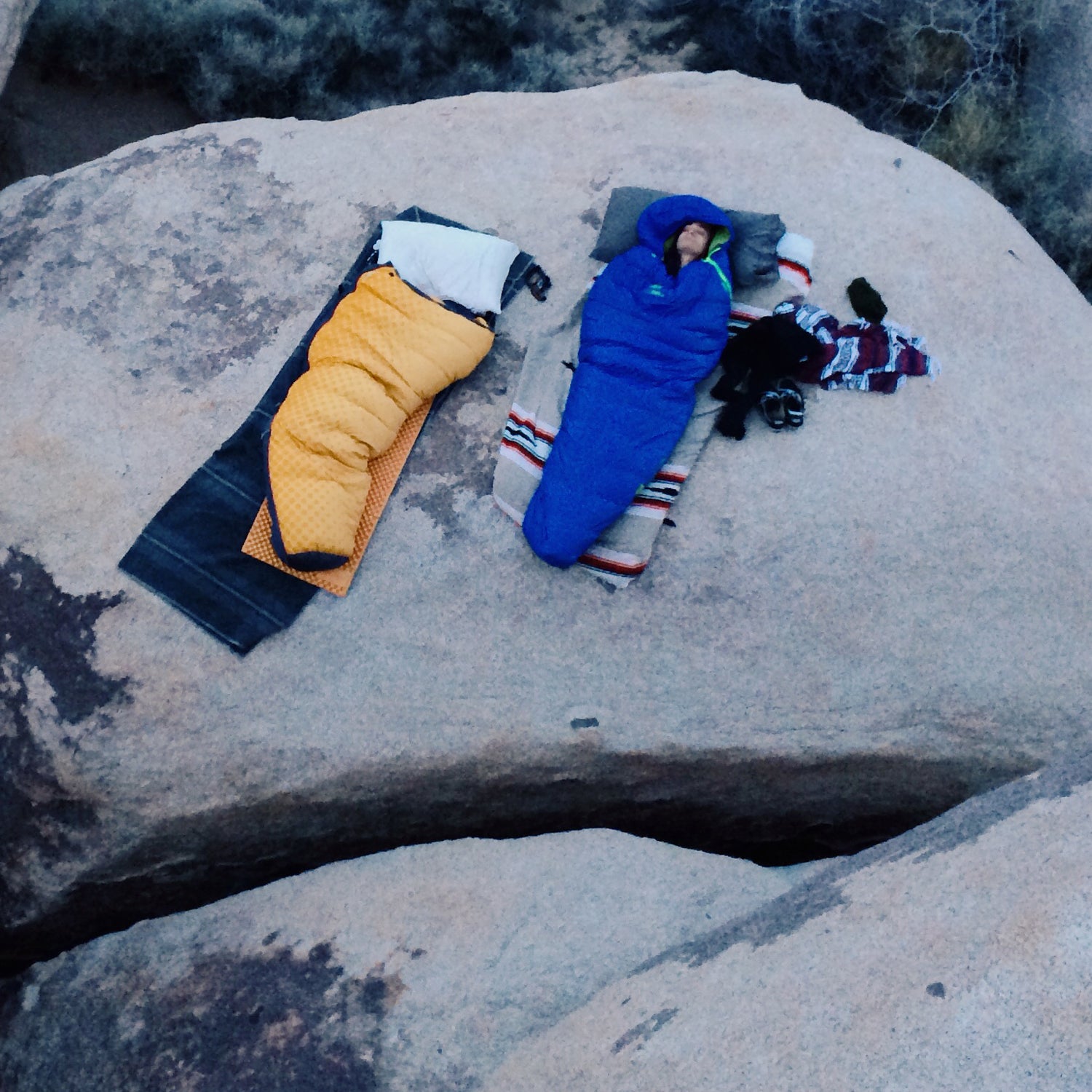Welcome to Tough Love. Every other week, we’re answering your questions about dating, breakups, and everything in between. Our advice giver is Blair Braverman, dogsled racer and author of . Have a question of your own? Write to us at toughlove@outsidemag.com.
My wife had a scare last year with a tick bite on her ankle (it swelled up and she thought she had Lyme disease, but it turned out she didn't) and since then she's been really paranoid about going outside in the summer. She spends ages checking herself for ticks even when she just walks across the grass, and it seems she's always so distracted that it’s hardly fun any more. How can I help her to relax and enjoy herself again?
—Ticked Off
First off, recognize that her fear is valid. As someone who got Lyme disease two years ago, I can confirm that it can mess up your life, and should be treated with the same respect as any other potentially-health-ruining activity like, say, walking on the edge of a cliff or barbecuing in polar bear country. It’s possible that her “paranoia” increases in proportion to your dismissals of it—much like if she insisted on grilling burgers outside at 3 a.m. in Churchill, Manitoba, you might find yourself clinging to a tranquilizer gun, downing your second 5-Hour Energy of the night.
It sounds like two things are going on here. One, your wife is concerned about ticks and wants to take the proper precautions. Two, that concern may have grown into its own anxiety that’s interfering with her quality of life. These are linked, of course, but they’re two different problems.
Your response to the first can actually be pretty simple. Take your wife’s concerns seriously; respect her caution. Read the CDC’s latest report on tick-borne illnesses, learn about the types of ticks that live in your area (although keep in mind that with climate change, habitats are shifting), and study up on tick safety. Get some good bug repellant and wear lightweight, light-colored pants tucked into your socks, especially when you’re in the woods or crossing tall grass. Wash your clothes in hot water. Check each other’s hard-to-see spots. None of these precautions need to be particularly dramatic; they can be as casual as fastening your seat belt or reapplying sunscreen at the beach. Once you build the habit, you’ll hardly notice.
It might also help your wife to have a plan in place if either of you does find an embedded tick. Worst case scenario, if you live in a Lyme hotspot, your doctor might recommend a single antibiotic as a prophylactic, or even a short course of doxycycline. But odds are that the risk is minimal; you can save the tick in a baggie, keep an eye out for symptoms, and go on with your lives. With time, and when disaster doesn’t strike, your wife’s worries will probably ease up on their own.
If not, it’s possible that her fear of ticks is part of a greater anxiety disorder. In that case, support her as you would for any other health concern: with your love and encouragement, and with the help of a medical specialist. Either way, remember that this, too, shall end—come winter, when ticks die off and you can tromp in the woods together to your heart’s content.
One more thing: unusual anxiety and panic can itself be a symptom of tick-borne illnesses—and your wife’s first blood test might not have been fully accurate. It might be worth going in for a follow-up blood panel, especially if her health (mental or physical) has changed in other ways. If she’s got the crud, better to catch it late than later.
Q: This might be TMI but I love the idea of hooking up in the woods. When my boyfriend and I go backpacking, we always have fun, cook a nice dinner, sit around the fire, et cetera. But when we get in the tent, he isn't interested. Otherwise our sex life is really great. Any tips for outdoorsy seduction?
—Frustrated Lumbersexual
As with everything else nookie-related, your best bet is to talk it out when you’re not, uh, in the proximate occasion of your lustfulness. Hopefully you two are already good at talking about sex! And if not, this is a great chance to practice. I’ll even give you some lines to use, if you’re concerned about coming up with your own.
“I was thinking… it would be really hot to hook up the next time we’re camping.”
“Hey Viggo, I want to ___ your ___ on a mountain.”
Your guy might decline, with or without an explanation; as a good human and lover, don’t push his “no.” He might respond with an enthusiastic yes—maybe the idea never occurred to him. More likely, there’s something about camping that puts him out of the mood, even if he’s open to working around it. Maybe he’s worried about privacy, or feeling clean, or maybe he’s just exhausted after hiking. Whatever the reason, discuss it specifically: if he’s insecure about BO, what if you pitch your tent by a swimming hole? If he’s tired at night, you could linger in your sleeping bag on a rainy morning.
Remember that sex is a huge category, and what feels right outdoors could look very different from your normal routine. Nothing kills a sex drive (or a relationship) like pressure, so when the mood is right, take your time. Flirt. Be playful. Make each other feel good. Backpacking sex is like the trip itself: the fun parts are along the way.
Your turn—ask away at toughlove@outsidemag.com.


